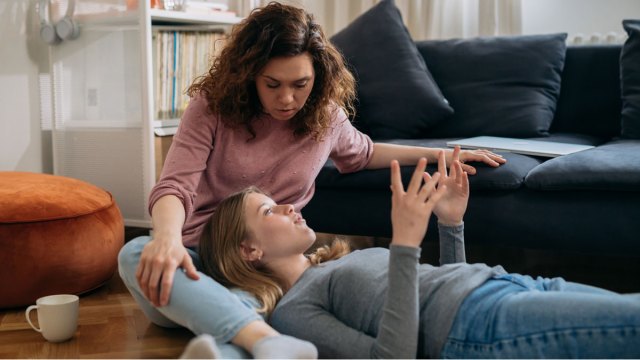Here’s how to teach your kids to talk back (respectfully) so you actually practice what you preach
Most millennials grew up hearing a common refrain from their parents: Don’t talk back. But the current generation of kids might be getting a new lesson—that talking back is OK, under the right circumstances. In a TikTok video, parenting coach Destini Ann Davis explains why she actually taught her kids to talk back to her, and why other parents should, too.
“My daughters are absolutely allowed to tell me about myself, and I absolutely don’t think that it’s disrespectful,” she says. “As a matter of fact, I taught them how to do this respectfully. And I would venture to say that a lot of the reason that some of us are not able to truly take accountability—not just say sorry to our kids, but actually take accountability with changed behavior—is because our kids are too afraid to tell us when we are not living up to our own standards.”
@destini.ann Call me out boo 🤷🏾♀️
♬ original sound – Destini Ann
Want to teach your kids to talk back respectfully like Davis did? Here’s what she recommends.
“Here are some of the things that my daughters say when I’m not keeping my word—when I’m not doing the things that I expect them to do,” she says
The first thing is, “I didn’t appreciate (blank).”
The example Davis shares is, “Mommy, I didn’t appreciate when I was telling you about my day and you were on your phone.”
To viewers, she says, “I know some of y’all aren’t ready for that, but that’s effective communication.” And is she wrong? We think not.
The second way her kids talk back is, “Please respect (blank).”
For example, Davis says, “Mommy, I don’t want to be tickled. Please respect my body.”
This one seems especially powerful because kids deserve autonomy just like adults. At the end of her video, Davis reinforces that message with this hard truth: “Listen, as parents, if we are not careful, we will unintentionally power over our kids. For some reason, the parent-child relationship is one of the only relationships where it is expected for one party to not have a voice, and that’s just not OK.”
She’s right. It’s not OK. But with these examples, kids can learn to more effectively communicate, express their experiences, and hold their parents accountable when it makes sense.
